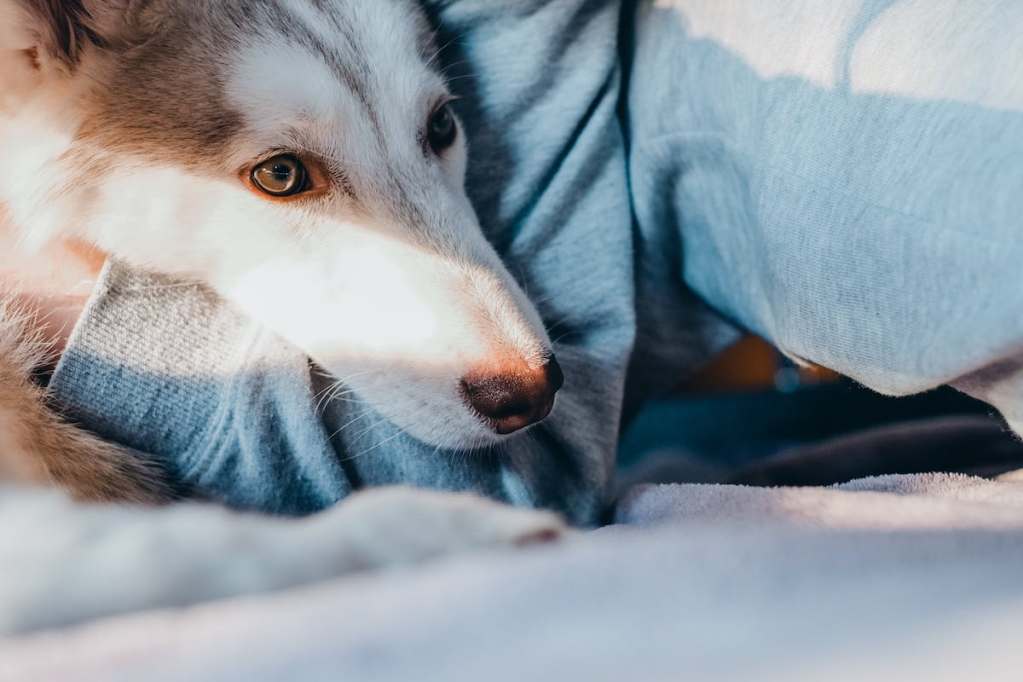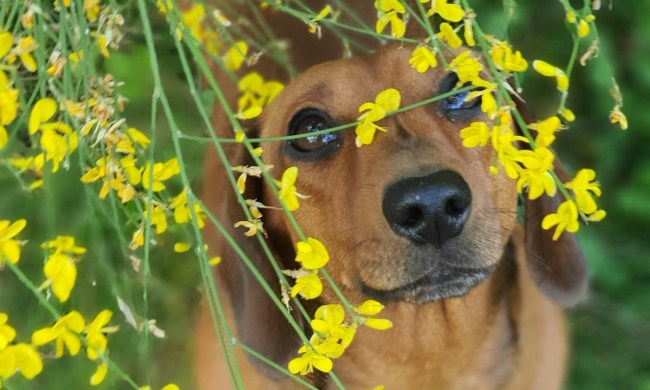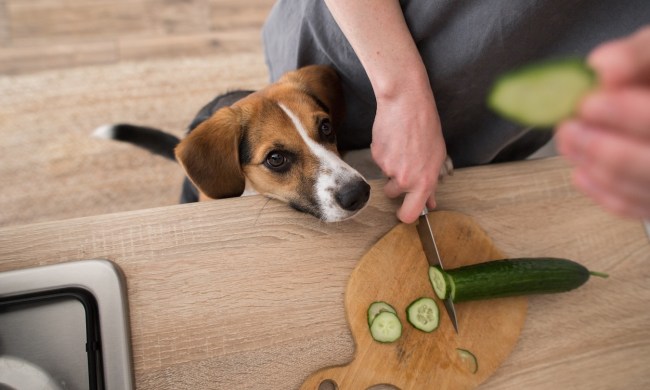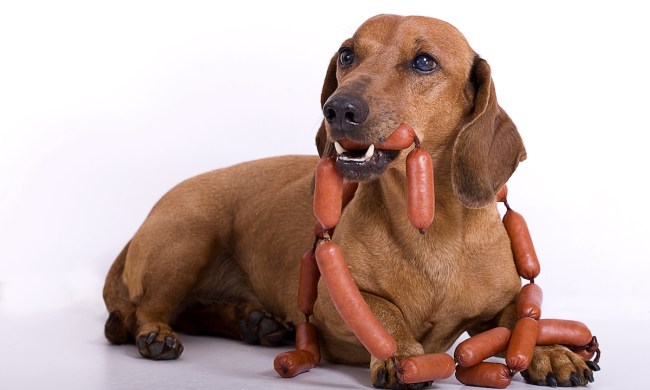Being a dog parent can be a joyful experience — no matter what your boss thinks of you, you can count on your pup to show you affection when you walk in the door. In exchange for their unconditional love and affection, dogs require that we take care of them and — sigh — pick up their poop (your neighborhood’s code enforcement requires the latter, to be more precise). Cleaning up after a dog also gives pet parents a role they may not have expected when they brought their furry friend home: Poop inspector.
Poop is a sign of a dog’s overall health. Regular, firm stool that resembles a caterpillar is one sign your pup is feeling well. If the stool is loose, you may need an answer to the question, “Why does my dog have diarrhea?” That depends. While we can’t answer the question definitively, we can provide some common causes of diarrhea and what to do.

Why does my dog have diarrhea?
We can’t tell you for sure. However, diarrhea occurs when a dog’s fecal movement moves through the intestines more quickly, and their body absorbs less water, electrolytes, and other nutrients. The result? Loose stools. Sometimes, a dog’s diarrhea can be completely liquid.
Gross? Yes, but it is true — dealing with doggie diarrhea is part of the nature of dealing with the (lovably) beasts. Understanding the cause of your dog’s diarrhea will help you (and their vet) help them. There are several potential reasons a dog might have diarrhea, including:
- Ingesting something toxic. Some foods (such as chocolate and garlic), plants, and household items are toxic to dogs. However, your pup doesn’t know that, and curiosity and their natural food drive might get the best of them.
- Diet changes. If you recently changed your dog’s diet, their stomach may have trouble adjusting. Go slowly.
- Food intolerances or allergies. Sometimes, a dog is allergic to their food. Other times, the food may be too hard on their stomach, even if no allergy is present.
- Bacterial infections. Infections like salmonella can cause diarrhea in dogs.
- Viral infections. Pups can get coronaviruses, too. These infections, along with others like parvovirus, can trigger poop problems.
- Parasitic infection. Other parasites, like hookworm and ringworm, can invade a pup’s body and affect the stomach, including causing diarrhea.
- Stress. Has stress ever caused your stomach to feel like it’s in knots? Ditto for dogs. Remember, dogs can get emotional, too. Stress from travel or even a trip to the vet might upset their tummy.
- Reactions to medications. If a dog is having trouble tolerating a medication, their body might show you through their poop.
- Inflammatory bowel disease. Like humans, dogs can experience inflammatory bowel disease, and loose stools are a red flag.
- Organ dysfunction. In more severe cases, a dog’s diarrhea can be a symptom of kidney and liver disease.
- Cancer. Sometimes, poop can be a flag your dog has cancer, including in the stomach.

What to do if your dog has diarrhea
The good news is that diarrhea often resolves and has a mild cause. While the issue can be gross and uncomfortable, the prognosis is generally good. However, as you can tell, there are many reasons for doggie diarrhea. Only your dog’s vet can diagnose the cause of the diarrhea. If the regular veterinarian can’t, they can refer you to someone who can. You should always feel comfortable calling your dog’s vet — they’re here to help. However, you’ll want to get a professional on the line if your pet’s diarrhea hasn’t cleared up in two days. Additionally, call a vet if the diarrhea is accompanied by:
- Blood in the stool
- Black or tarry poop
- Vomiting
- Lethargy
- Lack of appetite lasting more than two days or a refusal to drink water
Your dog’s vet can run tests, including bloodwork and x-rays, to determine the cause of the diarrhea and help your pet get back to normal. Common treatments include medication, a bland diet, and food switches.

Closing thoughts
Dogs get diarrhea for many reasons, and the issue is often treatable with diet and medication. Common causes of diarrhea in dogs include infections, consuming something toxic, food intolerances and allergies, and inflammatory bowel disease. Sometimes, diarrhea can be a sign of something more severe, like cancer.
You should feel comfortable calling your dog’s veterinarian with any concerns. However, you’ll want to get the vet on the line if a dog’s diarrhea hasn’t improved after two days. A vet can take bloodwork and x-rays to find the precise cause of your pet’s poop problems and prescribe the correct treatment.




